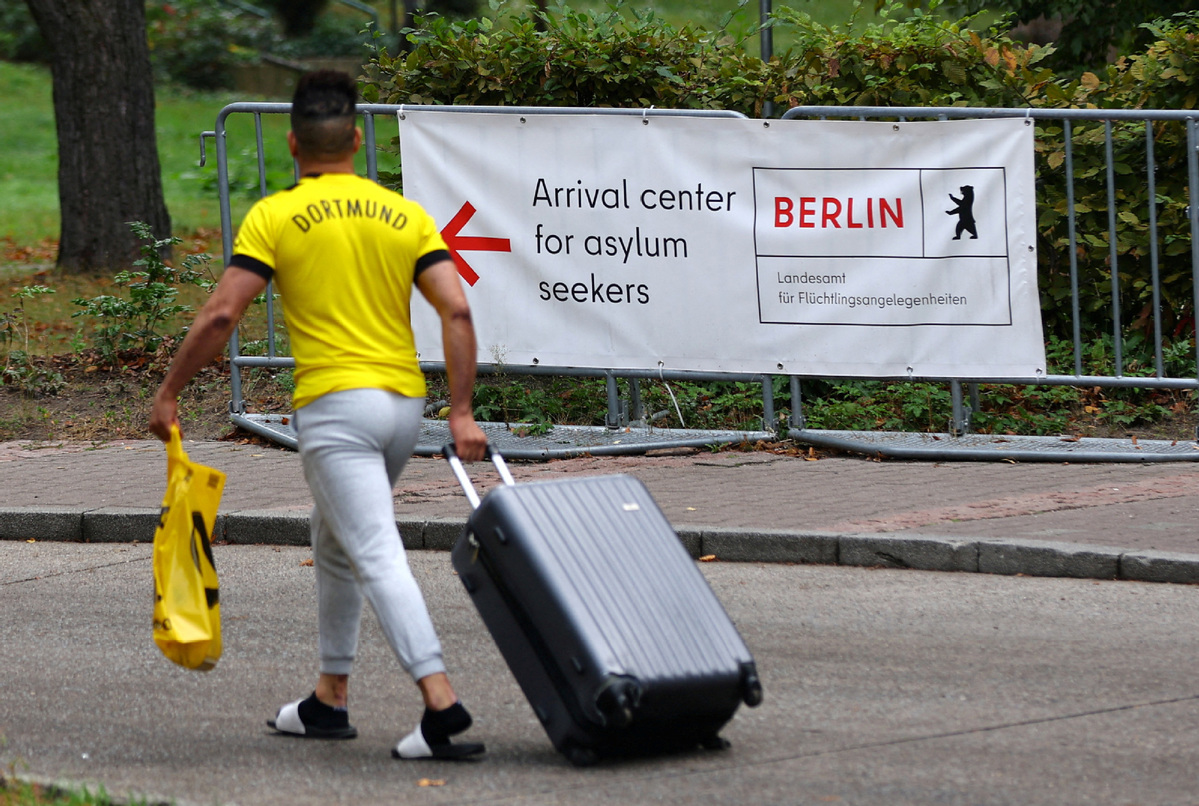EU plans to deport more rejected asylum-seekers


The European Union unveiled a new migration proposal on Tuesday aimed at increasing deportations of rejected asylum-seekers.
With data from the European Commission showing that less than 20 percent of people ordered to leave the EU actually depart, the "European System for Returns" plan presented includes establishing controversial "return hubs" in third countries as a solution.
Under the proposal, the European Commission seeks to strengthen the bloc's return system, including expanded powers to detain irregular migrants, reported news agencies.
"We are creating the scope for member states to explore new solutions for return," Magnus Brunner, the EU commissioner for migration, told a news briefing in Strasbourg on Tuesday.
"The European system needs to be clear that when someone is issued a return decision, they are being told to leave not just the country but the entire European Union," said Brunner, who described the 20 percent figure as unacceptable.
"Any figure would be an improvement, but we don't want to pin down any specific figures," he added.
The proposal also seeks to establish uniform standards across all 27 EU member states and enables authorities from one country to execute deportation orders issued by another — thereby addressing a gap in last year's migration and asylum pact.
The so-called "return hubs" are in fact deportation facilities located in non-EU countries. These centers would serve as temporary holding locations where rejected asylum-seekers would stay before being sent back to their home countries.
Humanitarian organizations have criticized the proposal as undermining the right to asylum.
"We can likely expect more people being locked up in immigration detention centers across Europe, families separated and people sent to countries they don't even know," warned Silvia Carta from the Platform for International Cooperation on Undocumented Migrants.
While the EU won't directly manage or construct the return hubs, it plans to negotiate agreements with countries willing to accept rejected asylum-seekers.
"Keeping people deliberately out of sight and out of mind is not a sustainable solution to Europe's migration challenges," said Marta Welander from the International Rescue Committee, cautioning that such arrangements could lead to increased rights violations.
Rising anti-migration sentiment and hard-right electoral gains across EU countries have pressured governments to adopt stricter policies.
A group of EU nations, including Sweden, Italy, Denmark and the Netherlands, pushed for urgent legislation in October to accelerate deportations and explore "innovative" approaches to combat irregular migration.
"If we are not going to do the return hubs, what will we do instead is my question. We have tried other systems for many years, it doesn't work," Johan Forssell, Sweden's migration minister, told Agence France-Presse.
Return hubs are likely to face legal hurdles, similar to the UK's abandoned Rwanda deportation initiative and Italy's stalled migrant processing facilities in Albania.
































